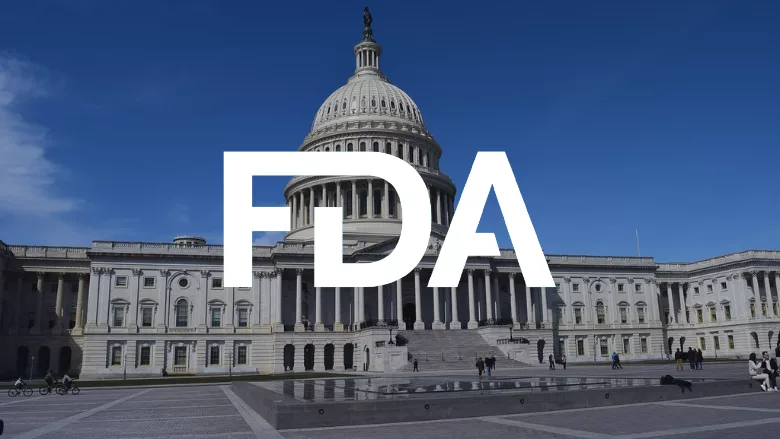Appropriations Bill Reveals Congressional Priorities for FDA in FY 2024: Restructuring Foods Program, Listeria Action Levels, and More

Image credit: bones64 via Pixabay
The U.S. House of Representatives’ Committee on Appropriations recently submitted a bill appropriating funds for agriculture, rural development, food and drugs, and related agencies for fiscal year (FY) 2024. Text was included in the bill mandating the U.S. Food and Drug Administration (FDA) to unify its Human Foods program under a single Deputy Commissioner.
The bill also directs FDA to focus on cultivated (also known as cell-based or cultured) protein approvals and plant-based product labeling; allergen identification, labeling, and regulation, including addressing the issue of companies intentionally adding sesame to food products; preventing Listeria monocytogenes; and implementation of the Food Traceability Final Rule.
Notably, regarding L. monocytogenes prevention efforts, the bill acknowledges FDA is in the process of finalizing industry guidance regarding the pathogen, and urges the agency to consider recent scientific literature supporting the adoption of a regulatory action level for L. monocytogenes in low-risk foods, which would “encourage industry to adopt quantitative [L. monocytogenes] testing schemes and facilitate robust environmental monitoring programs, ultimately resulting in reductions in disease incidence.”
The language echoes recommendations from the Reagan-Udall Foundation’s report on its independent evaluation of FDA, which FDA Commissioner Robert M. Califf, M.D., M.A.C.C. says will inform a “new vision” for the agency. The new vision for FDA includes a restructuring of the Human Foods program under a single Deputy Commissioner. In February 2023, the agency announced a national search for the Deputy Commissioner and provided an update on steps FDA has taken to achieve the new vision.
In the appropriations bill, FDA is mandated to unify the foods program under an expert, empowered Deputy Commissioner for Foods with direct authority over the Center for Food Safety and Applied Nutrition (CFSAN), the food and feed-related activities of the Center for Veterinary Medicine (CVM), and all food-related components of the Office of Regulatory Affairs (ORA), including inspection and compliance, food-related laboratories, import oversight, state partnerships, training, and information technology.
For FY 2024, the committee allocated FDA $3,504,150,000 in discretionary budget authority and $3,074,880,000 in definite user fees for a total estimated budget of $6,579,030,000. The FY 2024 provisions are $16 million more than FY 2023. Aside from the directive about restructuring the Human Foods program, other food safety-related mandates for FDA include:
- Identifying potential future food allergens that would require labeling and working toward implementing labeling requirements
- Producing a report within 90 days of the bill’s enactment that outlines the agency’s premarket consultation process for cell-cultured protein products
- Continuing work to review how the agency will enforce the standards of identity for dairy, and, in general, modernizing standards of identity regulations
- Addressing the lack of regulation of human donor milk and providing a briefing to Congress on its activities within 90 days of the bill’s enactment
- Producing a report on the implementation of the Food Allergy Safety, Treatment, Education and Research (FASTER) Act, including plans to address the issue of companies circumventing the intent of the law by adding sesame to food products to avoid the cost of preventing cross-contamination, and an analysis of whether actions by companies in response to the act’s passage violated federal food safety rules
- Evaluating whether artificial intelligence (AI) audit tools can assess food labeling accuracy and increase compliance
- Reviewing efficacy of materials used to package, ship, and distribute food and agricultural products in keeping food safe and fresh
- Preventing Listeria monocytogenes by continuing work on industry guidance regarding the pathogen, prioritizing ready-to-eat (RTE) foods in agency regulatory efforts, and implementing a new approach that incorporates a regulatory action level for the pathogen
- Continuing New Era of Smarter Food Safety efforts
- Modernizing requirements for pasteurized orange juice
- Providing outreach and training to small farms
- Conducting a study to better understand consumers’ attitudes, beliefs, perceptions, feelings, and motivations relative to product composition, health attributes, and labeling of plant-based proteins, as well as to assess consumer perceptions of different terms used on labeling of plant-based alternative products
- Clarifying labeling requirements of plant-based foods using seafood terminology to ensure they are held to the same standards as actual seafood products and avoid consumer confusion
- Working with the EU on an equivalence determination on processed molluscan shellfish that would remove a ban implemented by the EU
- Continuing development and implementation of the shrimp pilot program, including finalizing the establishment of regulatory partnership arrangements
- Developing a list of each commodity grouping subject to the Food Traceability Final Rule, to make available educational materials for providers that are interested in developing cost-effective technology for purposes of rule implementation, and to publish a protocol detailing consistent investigation practices the agency will use to respond to foodborne illness and outbreak investigations
- Modernizing data systems to support trackback activities.
Looking for quick answers on food safety topics?
Try Ask FSM, our new smart AI search tool.
Ask FSM →









